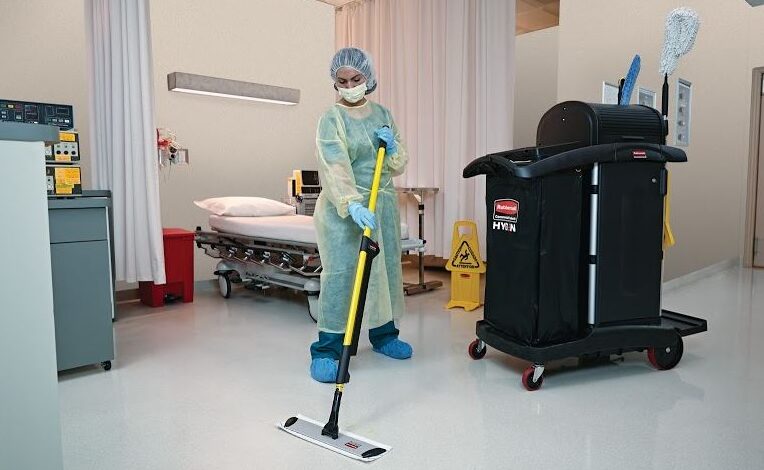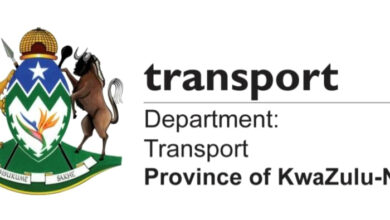cleaning jobs in government hospitals: great opportunities

Exciting cleaning jobs in government hospitals. Make a positive impact while enjoying competitive pay and benefits. Apply today!
Discover great cleaning jobs in government hospitals. Your destiny awaits with exciting opportunities to make a difference in healthcare today.
Cleaning jobs in government hospitals. Imagine walking into a hospital, expecting a clean and sterile environment, only to be greeted by unsanitary conditions. In government hospitals, where countless lives hang in the balance, cleanliness isn’t just a luxury—it’s a necessity. But who are the unsung heroes behind this crucial task?
Enter the world of hospital cleaning jobs. These essential workers are the frontline defenders against infections and diseases, ensuring that every surface, corridor, and room meets the highest standards of hygiene.
From battling stubborn stains to handling hazardous waste, their role is both challenging and rewarding. But what does it really take to excel in this field? And why should you consider a career in hospital cleaning?
In this blog post, cleaning jobs in government hospitals we’ll dive deep into the world of cleaning jobs in government hospitals. We’ll explore the various types of positions available, the skills you need to succeed, and the daily responsibilities you can expect.

cleaning jobs in government hospitals. Whether you’re looking for a career change or simply curious about this vital profession, join us as we uncover the challenges, rewards, and future prospects of hospital cleaning jobs.
Understanding the Importance of Hospital Cleanliness
Impact on patient health and recovery
A clean hospital environment is crucial for patient well-being. Studies show that proper cleanliness can significantly reduce recovery times and improve overall patient outcomes.
Preventing hospital-acquired infections
One of the primary reasons for maintaining cleanliness in hospitals is to prevent the spread of infections. Here’s a comparison of infection rates in clean vs. poorly maintained hospitals:
| Cleanliness Level | Hospital-Acquired Infection Rate |
|---|---|
| High | 2-3% |
| Moderate | 5-7% |
| Low | 10-15% |
Maintaining a professional environment
A clean hospital creates a positive impression on patients, visitors, and staff. It instills confidence in the quality of care provided and contributes to overall patient satisfaction.
Meeting regulatory standards
Government hospitals must adhere to strict cleanliness standards set by health authorities. These standards typically include:
- Regular disinfection of high-touch surfaces
- Proper waste management
- Adequate ventilation
- Sterile environments in critical areas (e.g., operating rooms)
Maintaining these standards is not just a legal requirement but also essential for the hospital’s reputation and accreditation. With this understanding of hospital cleanliness, let’s explore the various types of cleaning jobs in government hospitals.
Types of Cleaning Jobs in Government Hospitals
Government hospitals offer a variety of cleaning positions, each playing a crucial role in maintaining a safe and hygienic environment for patients, staff, and visitors. Let’s explore the different types of cleaning jobs available:
A. General Housekeeping
General housekeeping forms the backbone of hospital cleanliness. These professionals are responsible for:
- Dusting and wiping surfaces
- Mopping floors
- Cleaning bathrooms and patient rooms
- Emptying trash bins
- Restocking supplies
B. Specialized Cleaning for High-Risk Areas
cleaning jobs in government hospitals. High-risk areas, such as operating rooms and intensive care units, require specialized cleaning procedures:
- Using advanced disinfection techniques
- Following strict protocols for contamination prevention
- Employing specific cleaning agents for medical environments
C. Waste Management and Disposal
Proper handling of medical waste is critical in hospitals:
- Segregating different types of waste
- Safely disposing of hazardous materials
- Managing biomedical waste according to regulations
D. Laundry Services
Hospital laundry services ensure a constant supply of clean linens:
- Washing and sanitizing bed sheets, towels, and gowns
- Handling contaminated fabrics with care
- Maintaining proper inventory of clean linens
E. Equipment Sterilization
Sterilization technicians play a vital role in preventing infections:
- Cleaning and sterilizing medical instruments
- Operating autoclaves and other sterilization equipment
- Maintaining sterile storage areas
| Job Type | Key Responsibilities | Specialized Skills Required |
|---|---|---|
| General Housekeeping | Basic cleaning, restocking | Attention to detail |
| High-Risk Area Cleaning | Advanced disinfection | Knowledge of medical protocols |
| Waste Management | Proper disposal, segregation | Understanding of waste regulations |
| Laundry Services | Washing, sanitizing linens | Fabric care expertise |
| Equipment Sterilization | Instrument sterilization | Technical knowledge of sterilization methods |
Each of these roles contributes significantly to the overall cleanliness and safety of government hospitals. Next, we’ll explore the required skills and qualifications for these essential positions.
Required Skills and Qualifications
cleaning jobs in government hospitals. To excel in cleaning jobs within government hospitals, individuals need a specific set of skills and qualifications. Let’s explore the key areas of expertise required for these crucial roles.
Table of Contents
A. Basic cleaning techniques
Mastery of fundamental cleaning methods is essential. This includes:
- Proper use of cleaning agents and equipment
- Efficient mopping, dusting, and vacuuming techniques
- Understanding of different surface types and appropriate cleaning methods
B. Knowledge of disinfection protocols
In a hospital setting, disinfection is paramount. Key aspects include:
- Familiarity with various disinfectants and their applications
- Understanding of contact times for effective germ elimination
- Proper handling and disposal of contaminated materials
C. Understanding of hospital safety regulations
Safety is a top priority in healthcare environments. Important areas of knowledge include:
- Infection control procedures
- Proper handling of hazardous materials
- Emergency protocols and evacuation procedures
D. Physical stamina and attention to detail
The demanding nature of hospital cleaning requires:
- Ability to stand, walk, and lift for extended periods
- Keen eye for spotting potential hazards or missed areas
- Consistency in maintaining high cleanliness standards
| Skill | Importance | Examples |
|---|---|---|
| Basic cleaning techniques | High | Proper use of cleaning agents, efficient mopping |
| Disinfection protocols | Critical | Knowledge of disinfectants, understanding contact times |
| Safety regulations | Essential | Infection control, hazardous material handling |
| Physical stamina & detail-orientation | Vital | Extended standing/walking, spotting potential hazards |
With these skills and qualifications, cleaning staff can effectively contribute to maintaining a safe and hygienic hospital environment. Next, we’ll delve into the daily responsibilities and tasks associated with these crucial roles in cleaning jobs in government hospitals government.

Daily Responsibilities and Tasks
Now that we’ve covered the required skills and qualifications, let’s delve into the daily responsibilities and tasks of cleaning staff in government hospitals.
A. Cleaning patient rooms and common areas
cleaning jobs in government hospitals. Hospital cleaning staff are responsible for maintaining a hygienic environment in patient rooms and common areas. This includes:
- Dusting and wiping surfaces
- Mopping floors with appropriate disinfectants
- Changing bed linens and curtains
- Emptying trash bins and replacing liners
B. Sanitizing high-touch surfaces
High-touch surfaces require frequent sanitization to prevent the spread of infections:
| Surface | Frequency of Sanitization |
|---|---|
| Door handles | Every 2 hours |
| Light switches | Every 2 hours |
| Bed rails | After each patient use |
| Call buttons | After each patient use |
C. Managing biohazardous waste
Proper handling of biohazardous waste is crucial in a hospital setting:
- Wearing appropriate Personal Protective Equipment (PPE)
- Segregating waste according to hospital protocols
- Properly disposing of sharps in designated containers
- Ensuring secure transportation of biohazardous waste to disposal areas
D. Restocking cleaning supplies
Maintaining an adequate supply of cleaning materials is essential:
- Conducting regular inventory checks
- Ordering supplies before they run out
- Organizing storage areas for easy access
- Ensuring proper labeling of cleaning products
These tasks require attention to detail, adherence to strict protocols, and a commitment to maintaining a safe and clean environment for patients and staff alike. Next, we’ll explore the challenges and rewards that come with cleaning jobs in government hospitals.
Challenges and Rewards of Cleaning Jobs in government Hospital
Dealing with potentially infectious materials
Working in a hospital environment exposes cleaning staff to various health risks. They must handle potentially infectious materials daily, requiring strict adherence to safety protocols and proper use of personal protective equipment (PPE).
Working in a fast-paced environment
cleaning jobs in government hospitals demand quick turnaround times and high attention to detail. Staff must efficiently clean and sanitize areas while accommodating the constant flow of patients, visitors, and medical personnel.
Contributing to patient care and safety
Despite challenges, hospital cleaning jobs offer significant rewards. Cleaners play a crucial role in maintaining a safe and hygienic environment, directly impacting patient outcomes and overall healthcare quality.
Opportunities for career advancement
The healthcare sector provides various growth opportunities for cleaning staff. With experience and additional training, they can progress to supervisory roles or specialized cleaning positions.
| Challenges | Rewards |
|---|---|
| Exposure to infectious materials | Contribution to patient care |
| Fast-paced work environment | Job satisfaction |
| Physical demands | Career growth opportunities |
| Emotional stress | Stable employment in healthcare |
Key aspects of hospital cleaning jobs:
- Rigorous safety protocols
- Continuous training on new cleaning techniques
- Teamwork with medical staff
- Adaptability to changing situations
- Attention to detail in all tasks
With these challenges and rewards in mind, it’s clear that hospital cleaning jobs require dedication and skill. Next, we’ll explore the training and certification programs available to prepare individuals for these crucial roles in healthcare facilities.
Salary Ranges for Cleaning Staff in Government Hospitals
Now that we understand the nature of cleaning jobs in government hospitals, let’s explore the salary ranges for these positions in South Africa.
A. Entry-level salaries
Entry-level cleaning staff in government hospitals can expect to earn between R3,500 to R5,000 per month. This range may vary depending on factors such as location and specific hospital policies.
B. Experienced cleaner wages
With experience, cleaning staff can see their salaries increase. Experienced cleaners typically earn between R5,500 to R8,000 per month, reflecting their enhanced skills and efficiency.
C. Supervisory position compensation
Cleaning supervisors in government hospitals earn higher salaries, ranging from R8,500 to R12,000 per month, due to their additional responsibilities and leadership roles.
D. Factors affecting salary variations
Several factors influence salary variations within these ranges:
- Location (urban vs. rural hospitals)
- Years of experience
- Educational qualifications
- Performance evaluations
- Government budget allocations
| Experience Level | Salary Range (monthly) |
|---|---|
| Entry-level | R3,500 – R5,000 |
| Experienced | R5,500 – R8,000 |
| Supervisory | R8,500 – R12,000 |
It’s important to note that these figures are approximate and can vary based on individual circumstances and government policies. Next, we’ll explore the additional benefits and perks that come with cleaning jobs in government hospitals, which can significantly enhance the overall compensation package.
CONCLUSION
Cleaning jobs in government hospitals offer a stable career path with competitive salaries and benefits. While entry-level positions typically start around R5,000 to R7,000 per month, experienced cleaners can earn up to R15,000 or more.
These roles also come with additional perks such as medical aid, pension plans, and paid leave, making them attractive options for those seeking long-term employment.

For individuals interested in pursuing a cleaning career in government hospitals, it’s essential to meet the minimum requirements and stay informed about job openings. With dedication and hard work, there are opportunities for career growth and development within the hospital system.
Cleaning jobs in government hospitals. By continuously improving skills and taking on additional responsibilities, cleaners can advance to supervisory roles or specialized cleaning positions, further increasing their earning potential and job satisfaction




